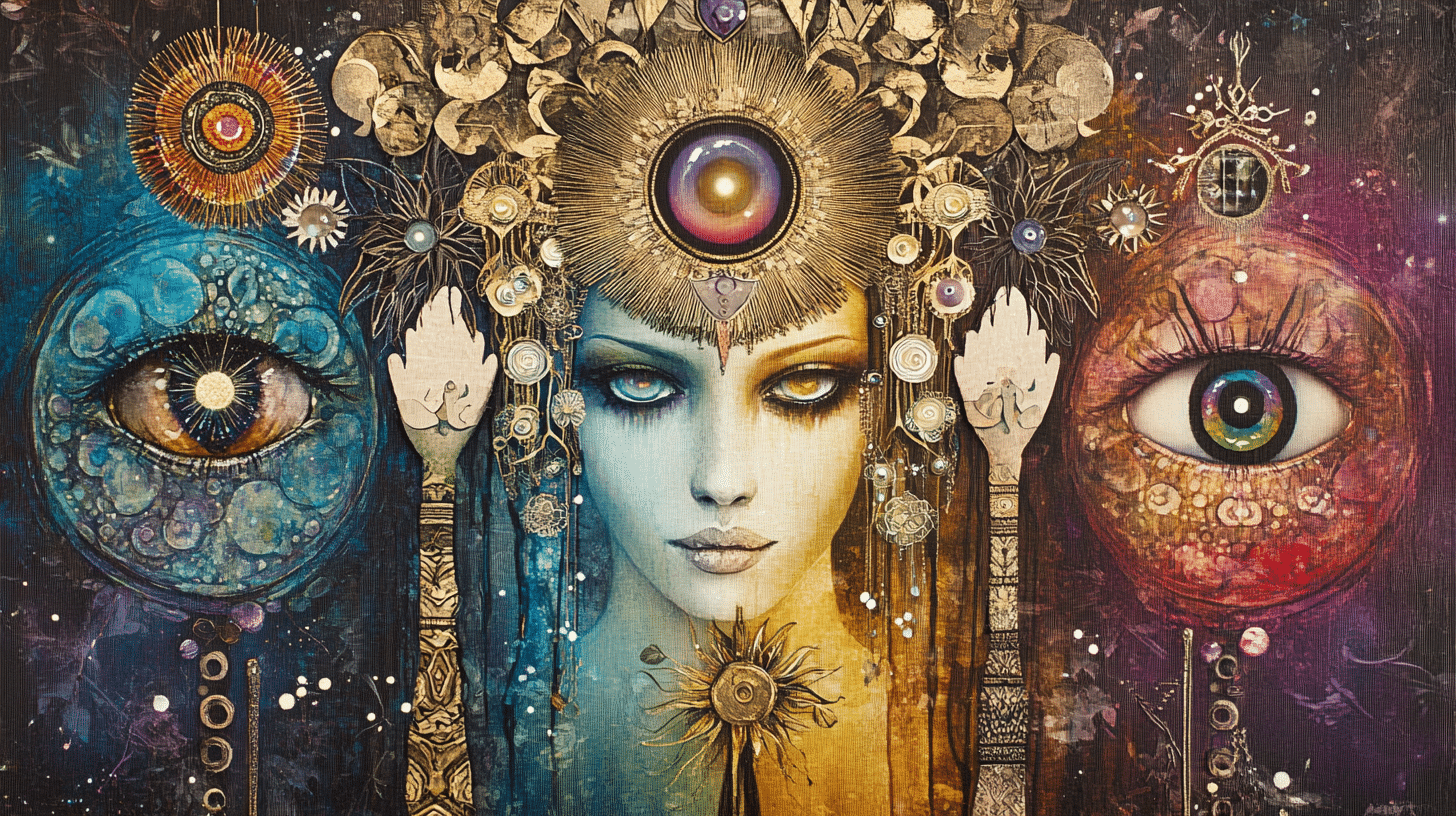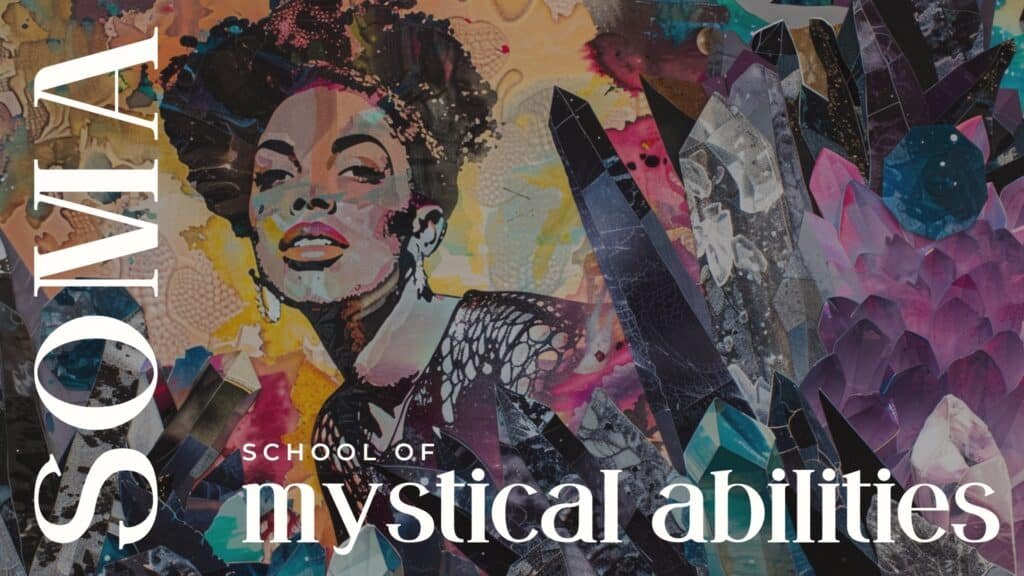
Ever worry that if you mention wanting to unlock psychic powers to someone, they’ll totally think you’re out of your mind? Well now you can just blame it on the telly.
In all seriousness, psychic phenomena have long captured the public imagination, and they’re everywhere in pop culture. From classic horror flicks to binge-worthy TV shows, these otherworldly abilities have been sensationalized, dramatized, and even satirized. But what can these portrayals tell us about our real-life perceptions of the paranormal?
In this post, we’re gonna dive deep into the psychic powers that lurk in movies, TV, books, and beyond. We’ll explore how these fantastical depictions shape our understanding of the supernatural – for better or for worse. So get ready to have your mind blown… or at least your curiosity piqued. Let’s get started!
The Psychic Powers That Be
When it comes to psychic abilities in pop culture, there’s a whole psychic toolbox to draw from. Telepathy – the power to read and influence minds – is a classic, often portrayed as a sort of mental ESP. Telekinesis, the ability to move objects with the mind, is another fan favorite, perfect for dramatic showdowns and dazzling displays of power. And then there’s precognition, the gift of foresight that allows psychics to glimpse the future.
These psychic powers are often ramped up to the extreme for entertainment value. We’re talking levitating objects, predicting natural disasters, and reading people’s innermost thoughts with laser-like precision. While real-life psychics may claim more subtle, nuanced abilities, pop culture psychics tend to be supernatural, wielding their powers in flashy, high-stakes ways.
But the range of psychic depictions is vast. Some portrayals are deadly serious, like the haunting visions of the future in Stephen King’s The Dead Zone. Others are more tongue-in-cheek, like the wisecracking psychic detective in the comedy series Psych. Whether played for scares or laughs, these pop culture psychics have undoubtedly shaped public perceptions of the paranormal.
Psychics on the Silver Screen
When it comes to psychic powers on the big screen, the stakes are always sky-high. In classic horror flicks like Carrie, telekinetic abilities become a terrifying weapon, unleashing destruction and chaos. Meanwhile, in the X-Men universe, psychic mutants like Professor X and Jean Grey use their mind-reading and telekinetic skills to protect the world from evil.
These cinematic psychics are often portrayed as tortured, conflicted individuals – their powers both a gift and a curse. They grapple with the moral and ethical quandaries of their abilities, which can make for gripping drama. But let’s be real, the real draw is the sheer spectacle of it all. Watching a character effortlessly hurl cars or read someone’s deepest secrets? That’s the kind of stuff that gets our adrenaline pumping.
Of course, these big-screen psychics don’t always reflect reality. Real-life psychics tend to have much more subtle, low-key abilities. But there’s no denying the impact of these larger-than-life portrayals. They’ve cemented psychic powers as the stuff of blockbuster entertainment, for better or worse.
Psychic Phenomena on the Small Screen
While movie psychics go big or go home, their small-screen counterparts run the gamut. On one end of the spectrum, you’ve got serious, gritty dramas like Medium, where a psychic mom uses her visions to solve crimes. These shows tend to explore the psychological and ethical complexities of psychic abilities in a more grounded way.
On the other hand, you’ve got quirkier, more lighthearted TV psychics, like the crime-solving duo in Psych or the mentalist extraordinaire in the show of the same name. These characters lean into the showmanship and entertainment value of their psychic skills, often playing up the drama for laughs.
Regardless of the tone, these small-screen psychics have undoubtedly helped normalize the idea of paranormal abilities. Sure, they may not be 100% realistic, but they’ve made psychic phenomena a familiar, almost commonplace part of our pop culture landscape. Who knows, maybe that’s paved the way for more people to embrace their own intuitive gifts (or at least be open to the possibility).
Otherworldly in Print
While movies and TV shows tend to focus on the flashy, high-stakes side of psychic powers, the written word allows for a deeper dive into the nuances and complexities. In sci-fi and fantasy novels, psychic abilities are often woven into sweeping, imaginative worldbuilding, exploring how these powers might shape society, culture, and the course of history.
Meanwhile, in true crime and supernatural thrillers, psychic powers take on a more grounded, unsettling edge. Think of the chilling visions of the future in Stephen King’s The Dead Zone or the ethics-testing psychic detective work in Karin Slaughter’s Pieces of Her. These literary psychics grapple with the moral quandaries and personal costs of their abilities in ways that can be both thought-provoking and bone-chilling.
Compared to their big and small-screen counterparts, book psychics tend to be a bit more complex, with flaws and inner conflicts that add depth and realism. And while the fantastical feats may still be present, the focus is often on the psychology and real-world implications of these extraordinary powers. It’s a different kind of psychic experience that can really get you thinking.

